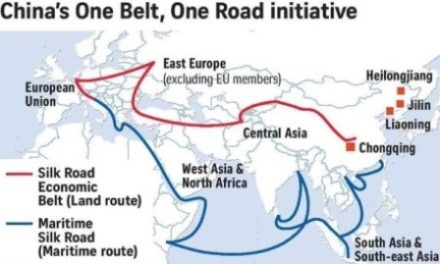
Conference explores game-changing potential of the circular economy for Africa

African countries have been urged to scale up circular value chains to accelerate industrialization and job creation in the green economy. The call was made last week during a virtual panel discussion on the circular economy at the 7th Europe-Africa Business Forum.
The circular economy refers to a model of sustainable production and consumption that aims to decouple economic growth from resource consumption. This includes designing products for longer use and ease of repair.
“Finance is a key enabler for the deployment of innovative solutions, so it is critical for the African Development Bank to anchor and nurture the circular economy as a bankable business model for Africa,” said Al-Hamndou Dorsouma, Officer-in-Charge for the African Development Bank’s climate change and green growth department.
Dorsouma said the circular economy offered a low-carbon and climate-compatible development strategy with strong adaptation benefits for the continent. He noted that accelerating the circular economy transition required increased access to finance and stronger partnerships.
The event highlighted the long-standing economic partnership between Africa and Europe and explored ways to embed the circular economy into regional cooperation to promote sustainable development. The European Commission and the African Circular Economy Alliance(link is external) organized the event.
In opening remarks, Josefa Sacko, Commissioner for Rural Economy and Agriculture at the African Union, said dynamic regional cooperation on the circular economy could help Africa achieve Agenda 2063 by reducing reliance on imports, enhancing resource efficiency, innovation and job creation.
The circular economy will be a central focus of cooperation with Africa, noted European Commissioner Virginius Sinkevicius. “Europe cannot solve the global environmental crises alone.”
Panellists cited various factors that would influence the transition to the circular economy. These include market awareness, behaviour change, greater access to data and regularization of informal activities.
During the meeting, Rwanda’s Minister of Environment, Jeanne d’Arc Mujawamariya, announced that the 2022 World Circular Economy Forum would take place in Rwanda. The Forum will be hosted by the Rwandan government, the African Circular Economy Alliance and the Finnish Innovation Fund, Sitra, with support from international partners.
“The circular economy can be a game-changer for Africa’s development. The World Circular Economy Forum 2022 is an opportunity for Rwanda and the continent as a whole to showcase our traditions of environmental stewardship, and to explore ways of making the transition to a fully circular economy a reality,” Mujawamariya said in a keynote statement.













































